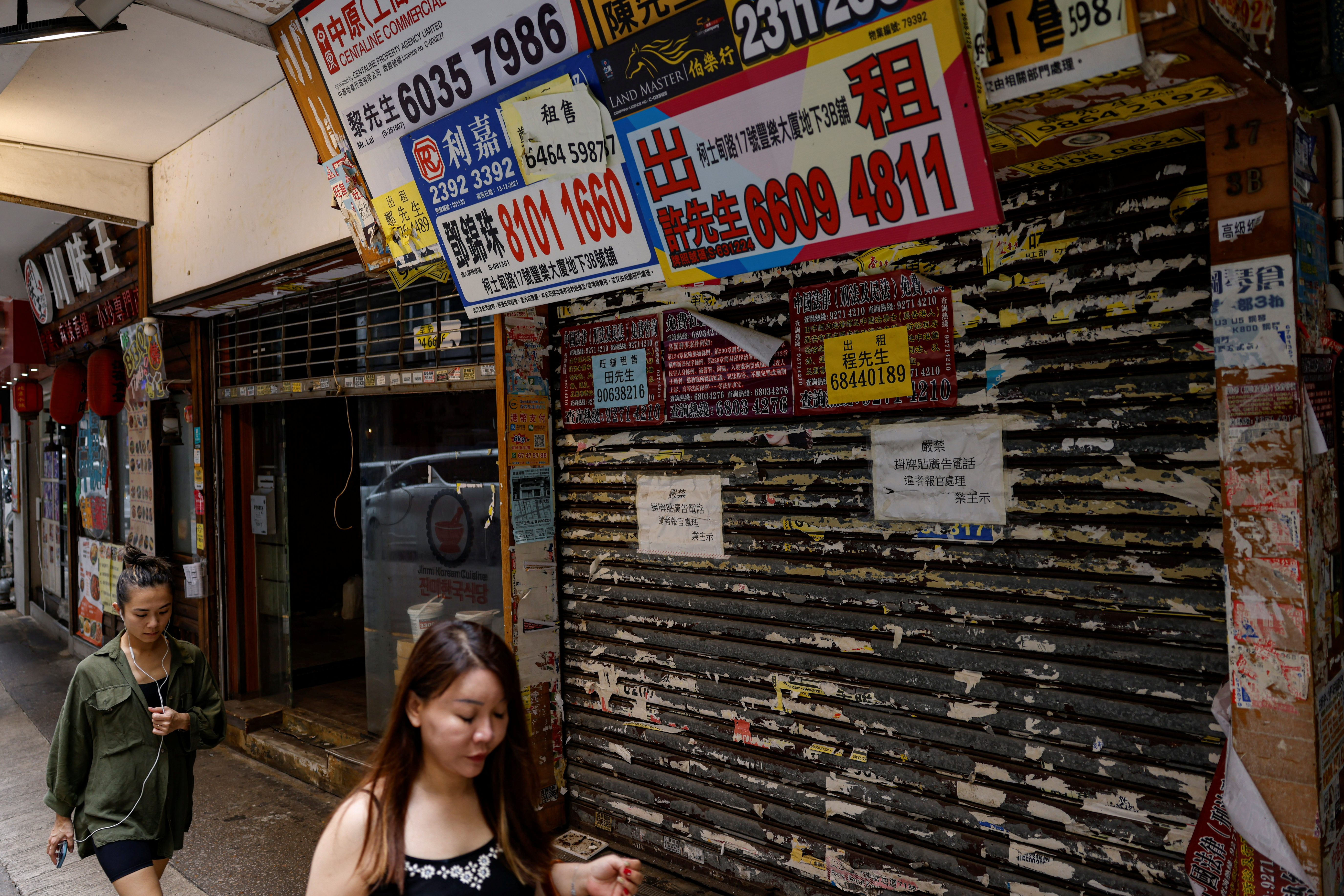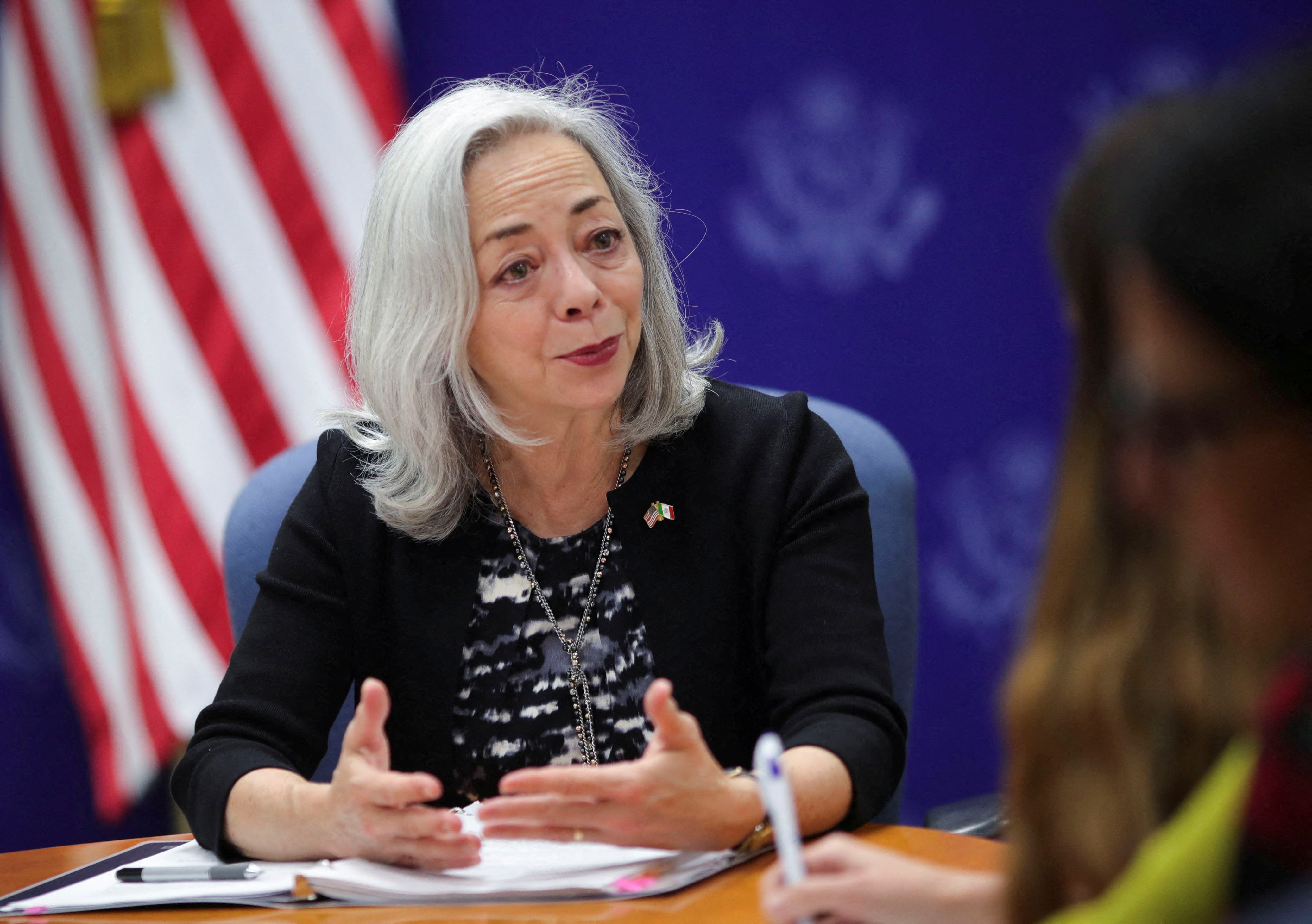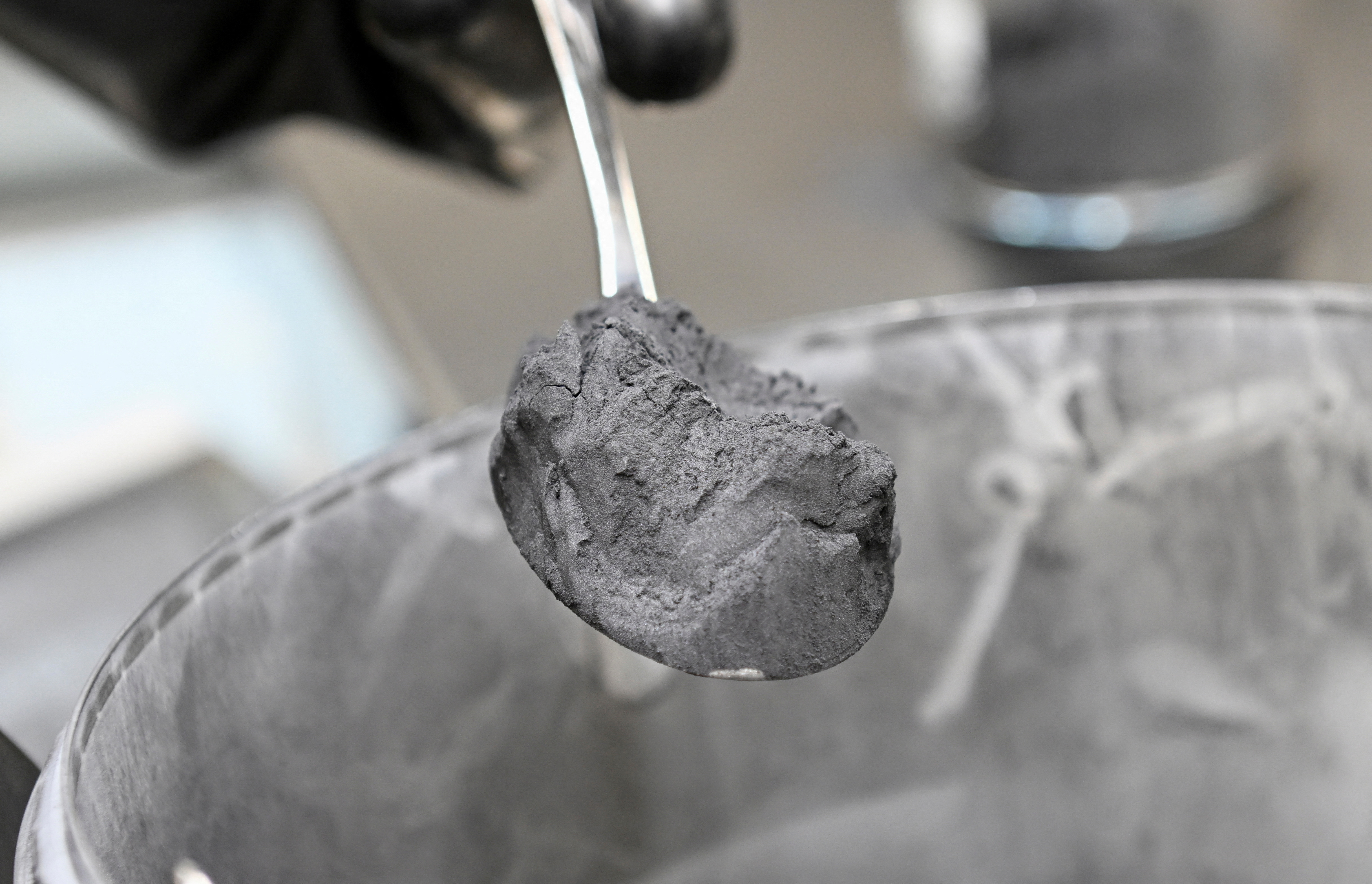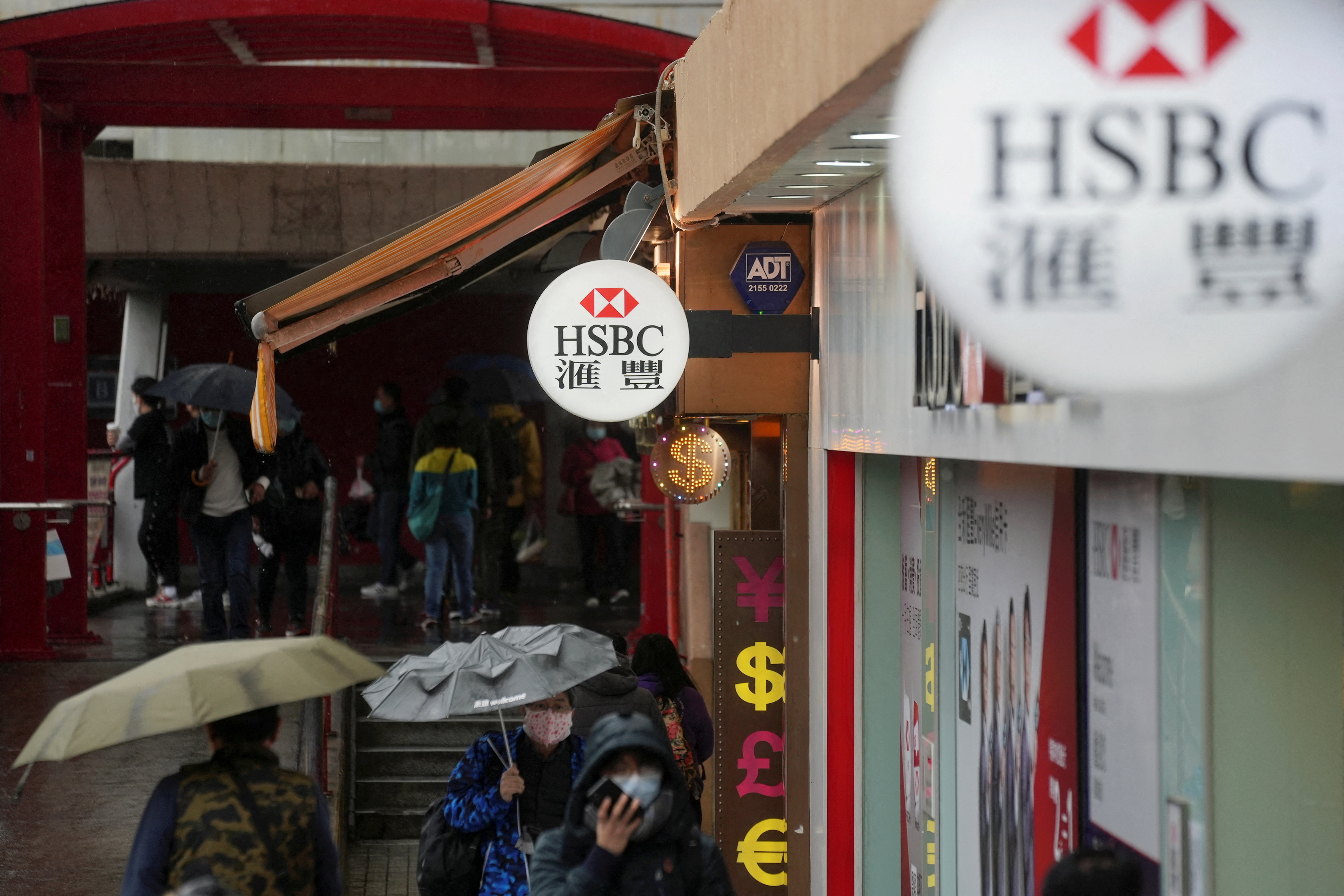Hong Kong businesses shut shop as city struggles to revive post pandemic
疫情后,香港生意难做,好多老板都关门大吉。
HONG KONG, April 30 (Reuters) - When Jacky Yu, 48, opened his Japanese gift shop in Hong Kong more than a decade ago, the tourist and shopping district of Mong Kok was a bustling hub packed with stalls, street food and tourists.
4 月 30 号,香港(路透社)- 48 岁的余杰(Jacky Yu)十几年前在香港开了家日本礼品店,当时旺角作为旅游和购物区,热闹非凡,到处都是摊位、街边小吃和游客。
4 月 30 号,香港(路透社)- 48 岁的余杰(Jacky Yu)十几年前在香港开了家日本礼品店,当时旺角作为旅游和购物区,热闹非凡,到处都是摊位、街边小吃和游客。
Fast-forward 12 years and parts of the area are struggling to stay afloat, a combination of customers emigrating, locals heading across the border to shop in China or travelling to Japan to benefit from a weak yen - and a dearth of tourists.
跑到前头 12 年,这地方有些地方现在挺难过的,顾客跑到外头了,本地人跑到中方逛商场或者跑日本捞便宜,因为日元贬值,再加上游客少了。
跑到前头 12 年,这地方有些地方现在挺难过的,顾客跑到外头了,本地人跑到中方逛商场或者跑日本捞便宜,因为日元贬值,再加上游客少了。
Yu says he's had to make the "heartbreaking" decision to close his store and move it online.
俞说,他不得不做一个“伤心”的决定,关了实体店,转战网上。
俞说,他不得不做一个“伤心”的决定,关了实体店,转战网上。
"I almost want to cry when I talk about it," said Yu, packing his unsold stationery and toys into storage boxes.
“讲到这事我都快哭了,”俞说着,把没卖出去的文具和玩具装进了收纳盒里。
“讲到这事我都快哭了,”俞说着,把没卖出去的文具和玩具装进了收纳盒里。
"There are very few tourists on the streets, even the mainland Chinese are very few."
大街上游客少的跟鬼似的,就连大陆人都少的可怜。
大街上游客少的跟鬼似的,就连大陆人都少的可怜。
Hong Kong is struggling to recover since the COVID pandemic, which saw many expatiates leave after a three year shutdown, and tourist numbers dwindle to a fraction of pre-pandemic levels. High rents and a labour shortage are now adding to the pain.
香港自从 COVID 疫情之后就开始艰难复苏,好多外地人在三年停摆之后都走了,游客数量也只剩下了疫情前的零头。高昂的房租和劳动力短缺现在又给大家添堵。
香港自从 COVID 疫情之后就开始艰难复苏,好多外地人在三年停摆之后都走了,游客数量也只剩下了疫情前的零头。高昂的房租和劳动力短缺现在又给大家添堵。
Businesses describe shopping malls as "dead", with low foot traffic and shops covered with "for lease" or "coming up soon" signs.
商家们说购物中心都‘死气沉沉’的,人流稀少,店铺上贴满了‘待租’或‘即将开业’的招牌。
商家们说购物中心都‘死气沉沉’的,人流稀少,店铺上贴满了‘待租’或‘即将开业’的招牌。
Edmund Wong, an accountancy sector lawmaker, told the city's legislature last Friday that more than 20,000 companies had deregistered in the first quarter of 2024, up more than 70% from the same period last year.
Edmund Wong, 一个会计行业的立法者,上周五对城市的立法机构表示,2024 年第一季度有超过 2 万家公司注销登记,比去年同期增长超过 70%。
Edmund Wong, 一个会计行业的立法者,上周五对城市的立法机构表示,2024 年第一季度有超过 2 万家公司注销登记,比去年同期增长超过 70%。
Simon Wong, president of the Hong Kong Federation of Restaurants and Related Trades, told public broadcaster RTHK that he estimated around 200-300 restaurants had closed over the past month, a trend he expects to continue.
Simon Wong, 香港餐饮业联合会主席,告诉公共广播电视台 RTHK,他估计过去一个月已有大约 200-300 家餐厅关闭,他预计这种趋势将继续。
Simon Wong, 香港餐饮业联合会主席,告诉公共广播电视台 RTHK,他估计过去一个月已有大约 200-300 家餐厅关闭,他预计这种趋势将继续。
On Tuesday, Hong Kong leader John Lee played down concerns about businesses closing.
周二,香港领导人 John Lee 淡化了有关企业关闭的担忧。
周二,香港领导人 John Lee 淡化了有关企业关闭的担忧。
"The world is always changing, and different industries will need to adapt, so there will be operators who are not so successful but new-comers are getting into the market."
世界老在变,不同行业都得跟上变化,所以有些老板不太成功,但新人也在进入市场。
世界老在变,不同行业都得跟上变化,所以有些老板不太成功,但新人也在进入市场。
[1/5]People walk past a closed-down retail shop in Tsim Sha Tsui, Hong Kong, China April 29, 2024. REUTERS/Tyrone Siu Purchase Licensing Rights
[1/5]人们从 2024 年 4 月 29 日在中国香港尖沙咀一个倒闭的零售店前走过。路透社/塔伦·萧 购买许可权
[1/5]人们从 2024 年 4 月 29 日在中国香港尖沙咀一个倒闭的零售店前走过。路透社/塔伦·萧 购买许可权
Even with the Golden Week holiday starting on Wednesday, a traditionally busy time for shopping and entertainment, many businesses are not optimistic.
尽管黄金周假期从周三开始,这是传统繁忙的购物和娱乐时段,但许多企业并不乐观。
尽管黄金周假期从周三开始,这是传统繁忙的购物和娱乐时段,但许多企业并不乐观。
"I don’t think the Golden Week will help much," said Wendy, 54, who works at a noodle shop in Mong Kok's Ladies Market.
"俺觉着黄金周帮不了啥忙," 54 岁的 Wendy 在旺角女人街一家面店打工的说。
"俺觉着黄金周帮不了啥忙," 54 岁的 Wendy 在旺角女人街一家面店打工的说。
"There were many tourists on this street ... but they're gone now."
这条街上游客多了...不过如今都走光了。
这条街上游客多了...不过如今都走光了。
Hong Kong residents are also deserting local shops and increasingly travelling across the border to the southern Chinese city of Shenzhen for food and entertainment, where they say prices and service are better.
香港居民也开始弃本地店铺,越来越多地到深圳这座南中国城市去吃喝玩乐,他们说那边的价格和服务更好。
香港居民也开始弃本地店铺,越来越多地到深圳这座南中国城市去吃喝玩乐,他们说那边的价格和服务更好。
"Hong Kong people are heading north to consume, which has become a clear trend. On weekends, many Hong Kong people go to Shenzhen for consumption," said Ting Lu, chief China economist at Nomura based in Hong Kong.
"哈尔滨人民往北消费,这家变成了一个明显的趋势。周末,好多哈尔滨人去深圳消费," Ting Lu 说,他是野村驻香港首席中国经济学家。
"哈尔滨人民往北消费,这家变成了一个明显的趋势。周末,好多哈尔滨人去深圳消费," Ting Lu 说,他是野村驻香港首席中国经济学家。
"The reason is that in the past five years, prices in Shenzhen, Guangzhou, and even Changsha have hardly changed much. But in Hong Kong ... We have found that the price difference has widened, which has encouraged Hong Kong people to go north for consumption."
原因在于过去五年,深圳、广州,甚至长沙的价格变化不大。但在香港...我们发现价格差距变大了,这促使香港人往北消费。
原因在于过去五年,深圳、广州,甚至长沙的价格变化不大。但在香港...我们发现价格差距变大了,这促使香港人往北消费。
After Hong Kong reopened its border post-pandemic with China last year, the Tourism Board recorded a 38.9% drop in mainland visitors in 2023, compared with 2019 before the pandemic.
疫情后去年香港与中国重新开放边境后,旅游局记录显示,2023 年与疫情前 2019 年相比,大陆游客减少了 38.9%。
疫情后去年香港与中国重新开放边境后,旅游局记录显示,2023 年与疫情前 2019 年相比,大陆游客减少了 38.9%。
Spending by same-day mainland tourists plunged 36.4% in 2023, dropping from an average of HK$2,200 per person in 2019 to HK$1,400 after the border reopened last year.
2023 年,同日大陆游客的消费下降了 36.4%,从 2019 年的每人平均 2200 港币降到去年边境重新开放后的 1400 港币。
2023 年,同日大陆游客的消费下降了 36.4%,从 2019 年的每人平均 2200 港币降到去年边境重新开放后的 1400 港币。
In the Hong Kong border town of Sheung Shui, where residents once used to complain about mainland Chinese overcrowding the town and pushing up rents as they flocked to buy everything from cosmetics and medicine to daily necessities, business is quiet.
喏,喺香港边境嘎双水镇,从前居民唠叨边个大陆人挤爆镇上,令房租涨得跟打了鸡血似的,因为佢哋成群结队嚟买各种化妆品、药品同埋日常用品,而侬瞅瞅,侬瞅瞅,侬瞅瞅,侬瞅瞅,侬瞅瞅,侬瞅瞅,侬瞅瞅,侬瞅瞅,侬瞅瞅,侬瞅瞅,侬瞅瞅,侬瞅瞅,侬瞅瞅,侬瞅瞅,侬瞅瞅,侬瞅瞅,侬瞅瞅,侬瞅瞅,侬瞅瞅,侬瞅瞅,侬瞅瞅,侬瞅瞅,侬瞅瞅,侬瞅瞅,侬瞅瞅,侬瞅瞅,侬瞅瞅,侬瞅瞅,侬瞅瞅,侬瞅瞅,侬瞅瞅,侬瞅瞅,侬瞅瞅,侬瞅瞅,侬瞅瞅,侬瞅瞅,侬瞅瞅,侬瞅瞅,侬瞅瞅,侬瞅瞅,侬瞅瞅,侬瞅瞅,侬瞅瞅,侬瞅瞅,侬瞅瞅,侬瞅瞅,侬瞅瞅,侬瞅瞅,侬瞅瞅,侬瞅瞅,侬瞅瞅,侬瞅瞅,侬瞅瞅,侬瞅瞅,侬瞅瞅,侬瞅瞅,侬瞅瞅,侬瞅瞅,侬瞅瞅,侬瞅瞅,侬瞅瞅,侬瞅瞅,侬瞅瞅,侬瞅瞅,侬瞅瞅,侬瞅瞅,侬瞅瞅,侬瞅瞅,侬瞅瞅,侬瞅瞅,侬瞅瞅,侬瞅瞅,侬瞅瞅,侬瞅瞅,侬瞅瞅,侬瞅瞅,侬瞅瞅,侬瞅瞅,侬瞅瞅,侬瞅瞅,侬瞅瞅,侬瞅瞅,侬瞅瞅,侬瞅瞅,侬瞅瞅,侬瞅瞅,侬瞅瞅,侬瞅瞅,侬瞅瞅,侬瞅瞅,侬瞅瞅,侬瞅瞅,侬瞅瞅,侬瞅瞅,侬瞅瞅,侬瞅瞅,侬瞅瞅,侬瞅瞅,侬瞅瞅,侬瞅瞅,侬瞅瞅,侬瞅瞅,侬瞅瞅,侬瞅瞅,侬瞅瞅,侬瞅瞅,侬瞅瞅,侬瞅瞅,侬瞅瞅,侬瞅瞅,侬瞅瞅,侬瞅瞅,侬瞅瞅,侬瞅瞅,侬瞅瞅,侬瞅瞅,侬瞅瞅,侬瞅瞅,侬瞅瞅,侬瞅瞅,侬瞅瞅,侬瞅瞅,侬瞅瞅,侬瞅瞅,侬瞅瞅,侬瞅瞅,侬瞅瞅,侬瞅瞅,侬瞅瞅,侬瞅瞅,侬瞅瞅,侬瞅瞅,侬瞅瞅,侬瞅瞅,侬瞅瞅,侬瞅瞅,侬瞅瞅,侬瞅瞅,侬瞅瞅,侬瞅瞅,侬瞅瞅,侬瞅瞅,侬瞅瞅,侬瞅瞅,侬瞅瞅,侬瞅瞅,侬瞅瞅,侬瞅瞅,侬瞅瞅,侬瞅瞅,侬瞅瞅,侬瞅瞅,侬瞅瞅,侬瞅瞅,侬瞅瞅,侬瞅瞅,侬瞅瞅,侬瞅瞅,侬瞅瞅,侬瞅瞅,侬瞅瞅,侬瞅瞅,侬瞅瞅,侬瞅瞅,侬瞅瞅,侬瞅瞅,侬瞅瞅,侬瞅瞅,侬瞅瞅,侬瞅瞅,侬瞅瞅,侬瞅瞅,侬瞅瞅,侬瞅瞅,侬瞅瞅,侬瞅瞅,侬瞅瞅,侬瞅瞅,侬瞅瞅,侬瞅瞅,侬瞅瞅,侬瞅瞅,侬瞅瞅,侬瞅瞅,侬瞅瞅,侬瞅瞅,侬瞅瞅,侬瞅瞅,侬瞅瞅,侬瞅瞅,侬瞅瞅,侬瞅瞅,侬瞅瞅,侬瞅瞅,侬瞅瞅,侬瞅瞅,侬瞅瞅,侬瞅瞅,侬瞅瞅,侬瞅瞅,侬瞅瞅,侬瞅瞅,侬瞅瞅,侬瞅瞅,侬瞅瞅,侬瞅瞅,侬瞅瞅,侬瞅瞅,侬瞅瞅,侬瞅瞅,侬瞅瞅,侬瞅瞅,侬瞅瞅,侬瞅瞅,侬瞅瞅,侬瞅瞅,侬瞅瞅,侬瞅瞅,侬瞅瞅,侬瞅瞅,侬瞅瞅,侬瞅瞅,侬瞅瞅,侬瞅瞅,侬瞅瞅,侬瞅瞅,侬瞅瞅,侬瞅瞅,侬瞅瞅,侬瞅瞅,侬瞅瞅,侬瞅瞅,侬瞅瞅,侬瞅瞅,侬瞅瞅,侬瞅瞅,侬瞅瞅,侬瞅瞅,侬瞅瞅,侬瞅瞅,侬瞅瞅,侬瞅瞅,侬瞅瞅,侬瞅瞅,侬瞅瞅,侬瞅瞅,侬瞅瞅,侬瞅瞅,侬瞅瞅,侬瞅瞅,侬瞅瞅,侬瞅瞅,侬瞅瞅,侬瞅瞅,侬瞅瞅,侬瞅瞅,侬瞅瞅,侬瞅瞅,侬瞅瞅,侬瞅瞅,侬瞅瞅,侬瞅瞅,侬瞅瞅,侬瞅瞅,侬瞅瞅,侬瞅瞅,侬瞅瞅,侬瞅瞅,侬瞅瞅,侬瞅瞅,侬瞅瞅,侬瞅瞅,侬瞅瞅,侬瞅瞅,侬瞅瞅,侬瞅瞅,侬瞅瞅,侬瞅瞅,侬瞅瞅,侬瞅瞅,侬瞅瞅,侬瞅瞅,侬瞅瞅,侬瞅瞅,侬瞅瞅,侬瞅瞅,侬瞅瞅,侬瞅瞅,侬瞅瞅,侬瞅瞅,侬瞅瞅,侬瞅瞅,侬瞅瞅,侬瞅瞅,侬瞅瞅,侬瞅瞅,侬瞅瞅,侬瞅瞅,侬瞅瞅,侬瞅瞅,侬瞅瞅,侬瞅瞅,侬瞅瞅,侬瞅瞅,侬瞅瞅,侬瞅瞅,侬瞅瞅,侬瞅瞅,侬瞅瞅,侬瞅瞅,侬瞅瞅,侬瞅瞅,侬瞅瞅,侬瞅瞅,侬瞅瞅,侬瞅瞅,侬瞅瞅,侬瞅瞅,侬瞅瞅,侬瞅瞅,侬瞅瞅,侬瞅瞅,侬瞅瞅,侬瞅瞅,侬瞅瞅,侬瞅瞅,侬瞅瞅,侬瞅瞅,侬瞅瞅,侬瞅瞅,侬瞅瞅,侬瞅瞅,侬瞅瞅,侬瞅瞅,侬瞅瞅,侬瞅瞅,侬瞅瞅,侬瞅瞅,侬瞅瞅,侬瞅瞅,侬瞅瞅,侬瞅瞅,侬瞅瞅,侬瞅瞅,侬瞅瞅,侬瞅瞅,侬瞅瞅,侬瞅瞅,侬瞅瞅,侬瞅瞅,侬瞅瞅,侬瞅瞅,侬瞅瞅,侬瞅瞅,侬瞅瞅,侬瞅瞅,侬瞅瞅,侬瞅瞅,侬瞅瞅,侬瞅瞅,侬瞅瞅,侬瞅瞅,侬瞅瞅,侬瞅瞅,侬瞅瞅,侬瞅瞅,侬瞅瞅,侬瞅瞅,侬瞅瞅,侬瞅瞅,侬瞅瞅,侬瞅瞅,侬瞅瞅,侬瞅瞅,侬瞅瞅,侬瞅瞅,侬瞅瞅,侬瞅瞅,侬瞅瞅,侬瞅瞅,侬瞅瞅,侬瞅瞅,侬瞅瞅,侬瞅瞅,侬瞅瞅,侬瞅瞅,侬瞅瞅,侬瞅瞅,侬瞅瞅,侬瞅瞅,侬瞅瞅,侬瞅瞅,侬瞅瞅,侬瞅瞅,侬瞅瞅,侬瞅瞅,侬瞅瞅,侬瞅瞅,侬瞅瞅,侬瞅瞅,侬瞅瞅,侬瞅瞅,侬瞅瞅,侬瞅瞅,侬瞅瞅,侬瞅瞅,侬瞅瞅,侬瞅瞅,侬瞅瞅,侬瞅瞅,侬瞅瞅,侬瞅瞅,侬瞅瞅,侬瞅瞅,侬瞅瞅,侬瞅瞅,侬瞅瞅,侬瞅瞅,侬瞅瞅,侬瞅瞅,侬瞅瞅,侬瞅瞅,侬瞅瞅,侬瞅瞅,侬瞅瞅,侬瞅瞅,侬瞅瞅,侬瞅瞅,侬瞅瞅,侬瞅瞅,侬瞅瞅,侬瞅瞅,侬瞅瞅,侬瞅瞅,侬瞅瞅,侬瞅瞅,侬瞅瞅,侬瞅瞅,侬瞅瞅,侬瞅瞅,侬瞅瞅,侬瞅瞅,侬瞅瞅,侬瞅
喏,喺香港边境嘎双水镇,从前居民唠叨边个大陆人挤爆镇上,令房租涨得跟打了鸡血似的,因为佢哋成群结队嚟买各种化妆品、药品同埋日常用品,而侬瞅瞅,侬瞅瞅,侬瞅瞅,侬瞅瞅,侬瞅瞅,侬瞅瞅,侬瞅瞅,侬瞅瞅,侬瞅瞅,侬瞅瞅,侬瞅瞅,侬瞅瞅,侬瞅瞅,侬瞅瞅,侬瞅瞅,侬瞅瞅,侬瞅瞅,侬瞅瞅,侬瞅瞅,侬瞅瞅,侬瞅瞅,侬瞅瞅,侬瞅瞅,侬瞅瞅,侬瞅瞅,侬瞅瞅,侬瞅瞅,侬瞅瞅,侬瞅瞅,侬瞅瞅,侬瞅瞅,侬瞅瞅,侬瞅瞅,侬瞅瞅,侬瞅瞅,侬瞅瞅,侬瞅瞅,侬瞅瞅,侬瞅瞅,侬瞅瞅,侬瞅瞅,侬瞅瞅,侬瞅瞅,侬瞅瞅,侬瞅瞅,侬瞅瞅,侬瞅瞅,侬瞅瞅,侬瞅瞅,侬瞅瞅,侬瞅瞅,侬瞅瞅,侬瞅瞅,侬瞅瞅,侬瞅瞅,侬瞅瞅,侬瞅瞅,侬瞅瞅,侬瞅瞅,侬瞅瞅,侬瞅瞅,侬瞅瞅,侬瞅瞅,侬瞅瞅,侬瞅瞅,侬瞅瞅,侬瞅瞅,侬瞅瞅,侬瞅瞅,侬瞅瞅,侬瞅瞅,侬瞅瞅,侬瞅瞅,侬瞅瞅,侬瞅瞅,侬瞅瞅,侬瞅瞅,侬瞅瞅,侬瞅瞅,侬瞅瞅,侬瞅瞅,侬瞅瞅,侬瞅瞅,侬瞅瞅,侬瞅瞅,侬瞅瞅,侬瞅瞅,侬瞅瞅,侬瞅瞅,侬瞅瞅,侬瞅瞅,侬瞅瞅,侬瞅瞅,侬瞅瞅,侬瞅瞅,侬瞅瞅,侬瞅瞅,侬瞅瞅,侬瞅瞅,侬瞅瞅,侬瞅瞅,侬瞅瞅,侬瞅瞅,侬瞅瞅,侬瞅瞅,侬瞅瞅,侬瞅瞅,侬瞅瞅,侬瞅瞅,侬瞅瞅,侬瞅瞅,侬瞅瞅,侬瞅瞅,侬瞅瞅,侬瞅瞅,侬瞅瞅,侬瞅瞅,侬瞅瞅,侬瞅瞅,侬瞅瞅,侬瞅瞅,侬瞅瞅,侬瞅瞅,侬瞅瞅,侬瞅瞅,侬瞅瞅,侬瞅瞅,侬瞅瞅,侬瞅瞅,侬瞅瞅,侬瞅瞅,侬瞅瞅,侬瞅瞅,侬瞅瞅,侬瞅瞅,侬瞅瞅,侬瞅瞅,侬瞅瞅,侬瞅瞅,侬瞅瞅,侬瞅瞅,侬瞅瞅,侬瞅瞅,侬瞅瞅,侬瞅瞅,侬瞅瞅,侬瞅瞅,侬瞅瞅,侬瞅瞅,侬瞅瞅,侬瞅瞅,侬瞅瞅,侬瞅瞅,侬瞅瞅,侬瞅瞅,侬瞅瞅,侬瞅瞅,侬瞅瞅,侬瞅瞅,侬瞅瞅,侬瞅瞅,侬瞅瞅,侬瞅瞅,侬瞅瞅,侬瞅瞅,侬瞅瞅,侬瞅瞅,侬瞅瞅,侬瞅瞅,侬瞅瞅,侬瞅瞅,侬瞅瞅,侬瞅瞅,侬瞅瞅,侬瞅瞅,侬瞅瞅,侬瞅瞅,侬瞅瞅,侬瞅瞅,侬瞅瞅,侬瞅瞅,侬瞅瞅,侬瞅瞅,侬瞅瞅,侬瞅瞅,侬瞅瞅,侬瞅瞅,侬瞅瞅,侬瞅瞅,侬瞅瞅,侬瞅瞅,侬瞅瞅,侬瞅瞅,侬瞅瞅,侬瞅瞅,侬瞅瞅,侬瞅瞅,侬瞅瞅,侬瞅瞅,侬瞅瞅,侬瞅瞅,侬瞅瞅,侬瞅瞅,侬瞅瞅,侬瞅瞅,侬瞅瞅,侬瞅瞅,侬瞅瞅,侬瞅瞅,侬瞅瞅,侬瞅瞅,侬瞅瞅,侬瞅瞅,侬瞅瞅,侬瞅瞅,侬瞅瞅,侬瞅瞅,侬瞅瞅,侬瞅瞅,侬瞅瞅,侬瞅瞅,侬瞅瞅,侬瞅瞅,侬瞅瞅,侬瞅瞅,侬瞅瞅,侬瞅瞅,侬瞅瞅,侬瞅瞅,侬瞅瞅,侬瞅瞅,侬瞅瞅,侬瞅瞅,侬瞅瞅,侬瞅瞅,侬瞅瞅,侬瞅瞅,侬瞅瞅,侬瞅瞅,侬瞅瞅,侬瞅瞅,侬瞅瞅,侬瞅瞅,侬瞅瞅,侬瞅瞅,侬瞅瞅,侬瞅瞅,侬瞅瞅,侬瞅瞅,侬瞅瞅,侬瞅瞅,侬瞅瞅,侬瞅瞅,侬瞅瞅,侬瞅瞅,侬瞅瞅,侬瞅瞅,侬瞅瞅,侬瞅瞅,侬瞅瞅,侬瞅瞅,侬瞅瞅,侬瞅瞅,侬瞅瞅,侬瞅瞅,侬瞅瞅,侬瞅瞅,侬瞅瞅,侬瞅瞅,侬瞅瞅,侬瞅瞅,侬瞅瞅,侬瞅瞅,侬瞅瞅,侬瞅瞅,侬瞅瞅,侬瞅瞅,侬瞅瞅,侬瞅瞅,侬瞅瞅,侬瞅瞅,侬瞅瞅,侬瞅瞅,侬瞅瞅,侬瞅瞅,侬瞅瞅,侬瞅瞅,侬瞅瞅,侬瞅瞅,侬瞅瞅,侬瞅瞅,侬瞅瞅,侬瞅瞅,侬瞅瞅,侬瞅瞅,侬瞅瞅,侬瞅瞅,侬瞅瞅,侬瞅瞅,侬瞅瞅,侬瞅瞅,侬瞅瞅,侬瞅瞅,侬瞅瞅,侬瞅瞅,侬瞅瞅,侬瞅瞅,侬瞅瞅,侬瞅瞅,侬瞅瞅,侬瞅瞅,侬瞅瞅,侬瞅瞅,侬瞅瞅,侬瞅瞅,侬瞅瞅,侬瞅瞅,侬瞅瞅,侬瞅瞅,侬瞅瞅,侬瞅瞅,侬瞅瞅,侬瞅瞅,侬瞅瞅,侬瞅瞅,侬瞅瞅,侬瞅瞅,侬瞅瞅,侬瞅瞅,侬瞅瞅,侬瞅瞅,侬瞅瞅,侬瞅瞅,侬瞅瞅,侬瞅瞅,侬瞅瞅,侬瞅瞅,侬瞅瞅,侬瞅瞅,侬瞅瞅,侬瞅瞅,侬瞅瞅,侬瞅瞅,侬瞅瞅,侬瞅瞅,侬瞅瞅,侬瞅瞅,侬瞅瞅,侬瞅瞅,侬瞅瞅,侬瞅瞅,侬瞅瞅,侬瞅瞅,侬瞅瞅,侬瞅瞅,侬瞅瞅,侬瞅瞅,侬瞅瞅,侬瞅瞅,侬瞅瞅,侬瞅瞅,侬瞅瞅,侬瞅瞅,侬瞅瞅,侬瞅瞅,侬瞅瞅,侬瞅瞅,侬瞅瞅,侬瞅瞅,侬瞅瞅,侬瞅瞅,侬瞅瞅,侬瞅瞅,侬瞅瞅,侬瞅瞅,侬瞅瞅,侬瞅瞅,侬瞅瞅,侬瞅瞅,侬瞅瞅,侬瞅瞅,侬瞅瞅,侬瞅瞅,侬瞅瞅,侬瞅瞅,侬瞅瞅,侬瞅瞅,侬瞅瞅,侬瞅瞅,侬瞅瞅,侬瞅瞅,侬瞅瞅,侬瞅瞅,侬瞅瞅,侬瞅瞅,侬瞅瞅,侬瞅瞅,侬瞅瞅,侬瞅瞅,侬瞅瞅,侬瞅瞅,侬瞅瞅,侬瞅瞅,侬瞅瞅,侬瞅瞅,侬瞅瞅,侬瞅瞅,侬瞅瞅,侬瞅瞅,侬瞅瞅,侬瞅瞅,侬瞅瞅,侬瞅瞅,侬瞅瞅,侬瞅瞅,侬瞅瞅,侬瞅瞅,侬瞅瞅,侬瞅瞅,侬瞅瞅,侬瞅瞅,侬瞅瞅,侬瞅瞅,侬瞅瞅,侬瞅瞅,侬瞅瞅,侬瞅瞅,侬瞅瞅,侬瞅瞅,侬瞅瞅,侬瞅瞅,侬瞅瞅,侬瞅瞅,侬瞅瞅,侬瞅瞅,侬瞅瞅,侬瞅瞅,侬瞅瞅,侬瞅瞅,侬瞅瞅,侬瞅瞅,侬瞅瞅,侬瞅瞅,侬瞅
Li, 30, a cosmetic shop keeper from Sheung Shui, said local consumers now tended to shop across the border in Shenzhen and the "the off-season" had now come earlier.
哎呀,俺家住在上水嘎 Li,今年 30 岁,经营一家化妆品店。佢说,最近本地消费者更倾向去深圳跨境购物,所以“淡季”现在来得更早了。
哎呀,俺家住在上水嘎 Li,今年 30 岁,经营一家化妆品店。佢说,最近本地消费者更倾向去深圳跨境购物,所以“淡季”现在来得更早了。
Lee, 35, a hamburger shopkeeper in Mong Kok district, said business had worsened since the border reopened.
李哥,35 岁,喺旺角开个汉堡店嘞,讲生意自从边境开放之后就更差劲了。
李哥,35 岁,喺旺角开个汉堡店嘞,讲生意自从边境开放之后就更差劲了。
"There is no one after eight o'clock, and it’s even scarier during the holidays. There are no tourists. Just like the past Easter holidays, we could sit and sleep here for three hours."
八点之后就没人了,过节的时候更吓人。没游客。就像上次复活节假期一样,我们能在这儿坐着睡上三个小时。
八点之后就没人了,过节的时候更吓人。没游客。就像上次复活节假期一样,我们能在这儿坐着睡上三个小时。
Coming soon: Get the latest news and expert analysis about the state of the global economy with Reuters Econ World. Sign up here.
快啦:来着 Reuters Econ World 看看全球经济咋样,专家分析最新动态。赶紧来报名呀!
Reporting by Jessie Pang, Joyce Zhou and Edward Cho, additional reporting by Kevin Yao in Beijing; Editing by Anne Marie Roantree and Michael Perry
来源:Jessie Pang、Joyce Zhou 和 Edward Cho 报道,北京的 Kevin Yao 进行了额外报道;Anne Marie Roantree 和 Michael Perry 编辑
Our Standards: The Thomson Reuters Trust Principles.
我们的标准:汤森路透信托原则。











